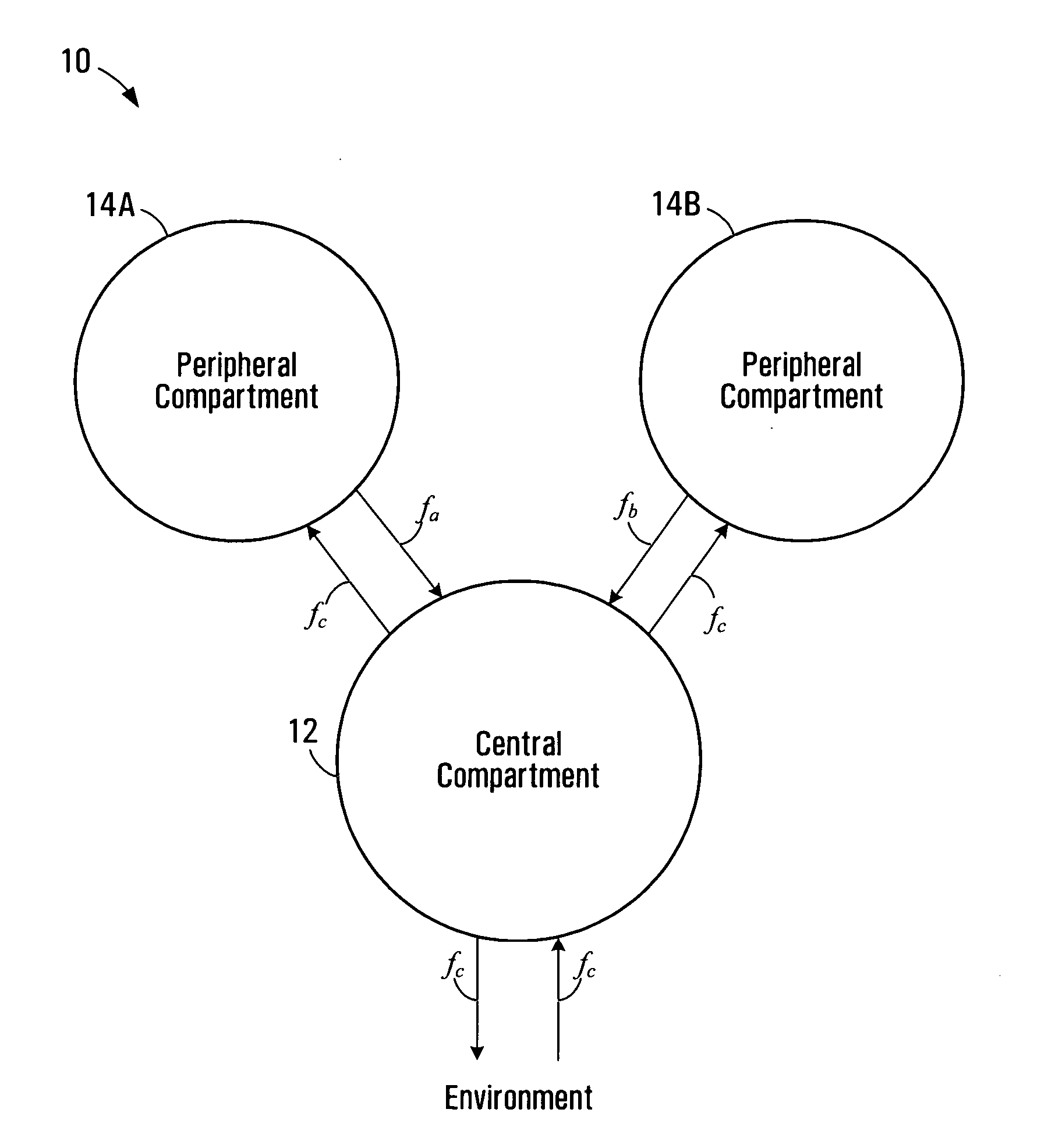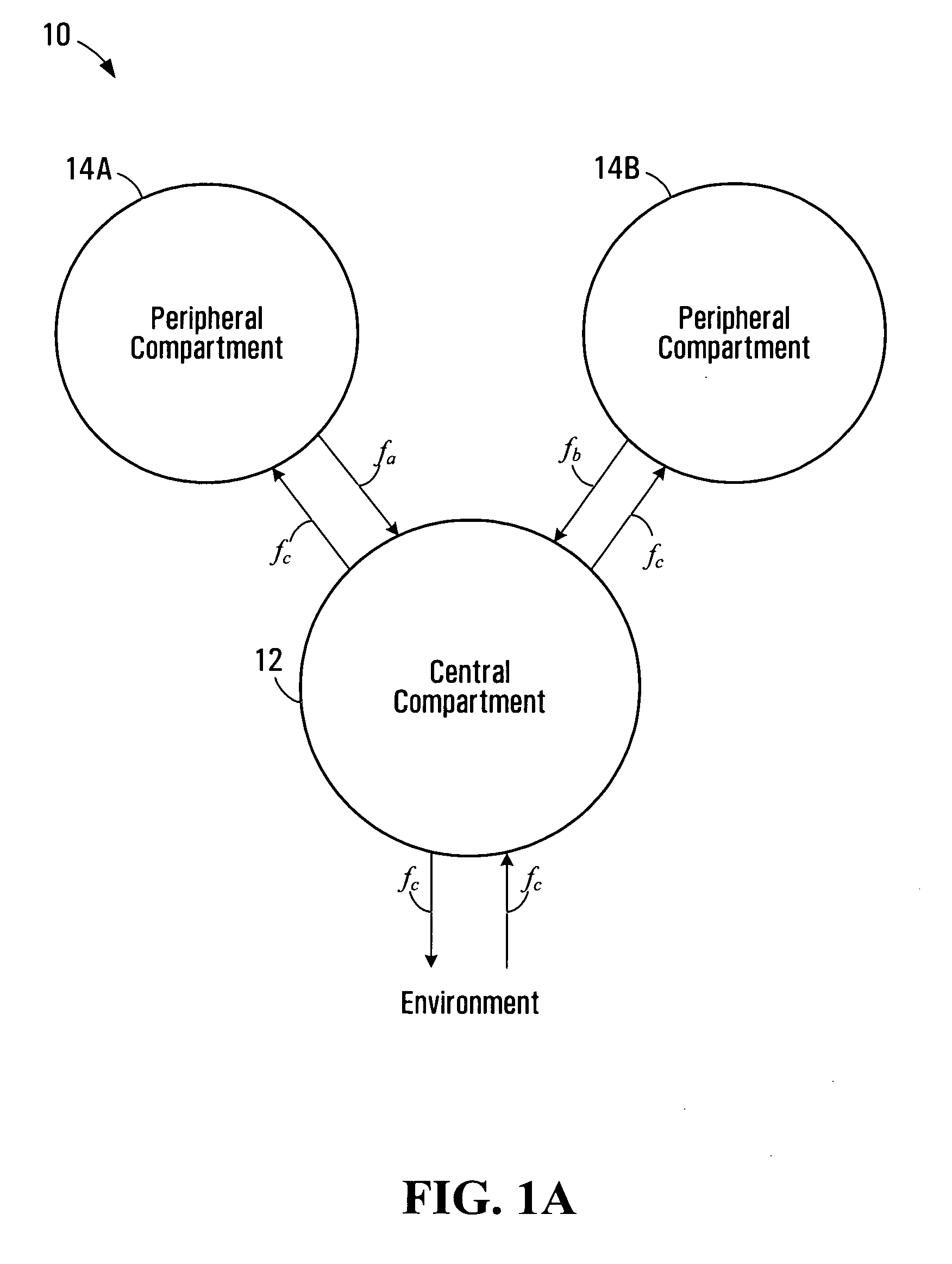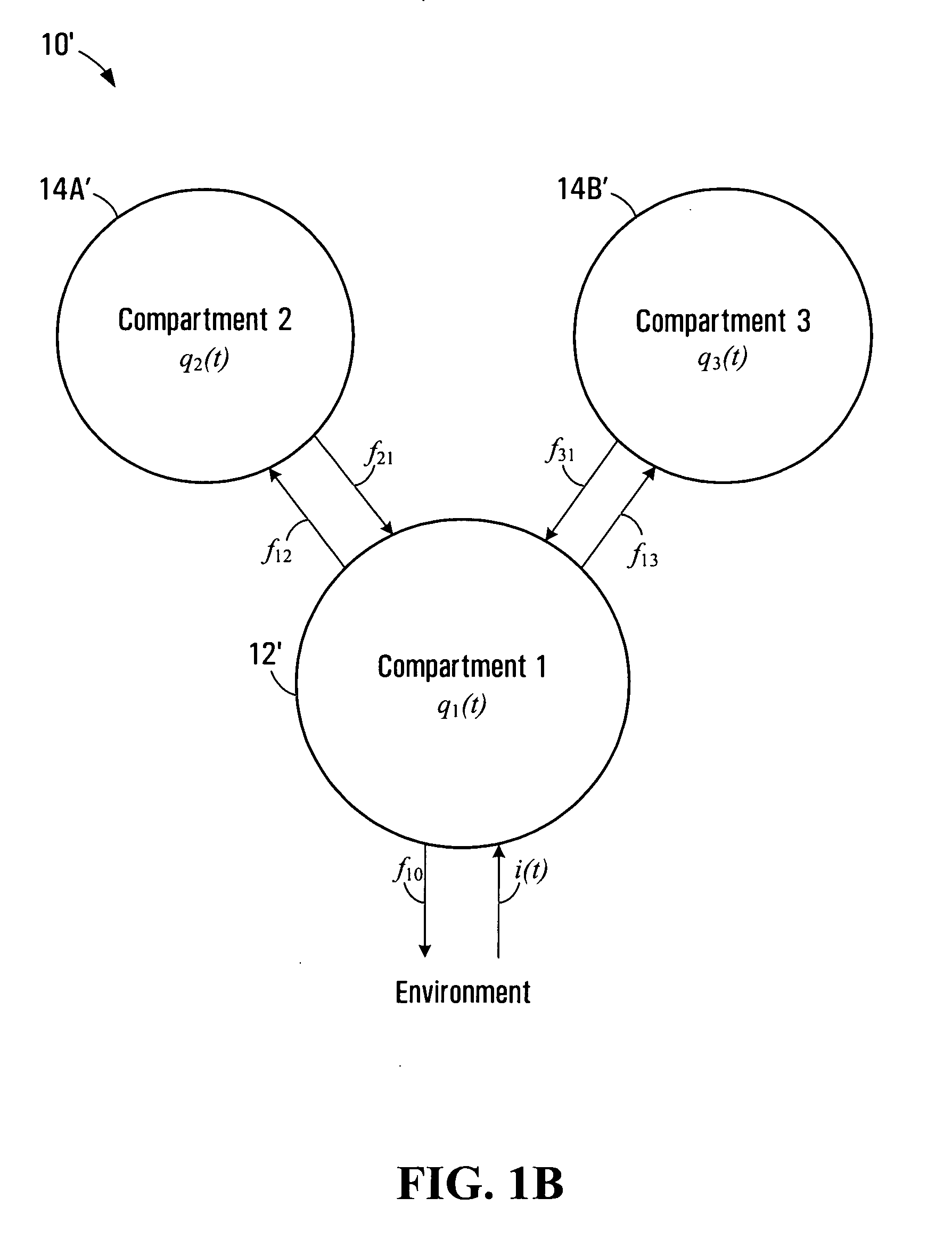Method and device for predicting risk of decompression sickness
- Summary
- Abstract
- Description
- Claims
- Application Information
AI Technical Summary
Problems solved by technology
Method used
Image
Examples
Embodiment Construction
[0030] The inventor has discovered that risks of decompression sickness (DCS) can be predicted using a compartmental system or model, which has a central compartment and a plurality of peripheral compartments, where the central compartment exchanges gas directly with each peripheral compartment and with an environment. The risks of DCS may be assessed from a gas pressure, or another measure of an amount of the model gas, in the central compartment. The system is referred to herein as an interconnected-compartment (IC) system or model. It has been discovered that an IC model can predict risks of DCS more accurately than conventional models, such as parallel-compartment (PC) models, for a wide range of exposure profiles.
[0031] As used herein, an exposure profile refers to a representation of a user's exposure to a breathing mixture as a function of time. An exposure profile can be a dive profile. A dive profile is a representation or schedule of the depth (or the ambient pressure) an...
PUM
 Login to View More
Login to View More Abstract
Description
Claims
Application Information
 Login to View More
Login to View More - R&D
- Intellectual Property
- Life Sciences
- Materials
- Tech Scout
- Unparalleled Data Quality
- Higher Quality Content
- 60% Fewer Hallucinations
Browse by: Latest US Patents, China's latest patents, Technical Efficacy Thesaurus, Application Domain, Technology Topic, Popular Technical Reports.
© 2025 PatSnap. All rights reserved.Legal|Privacy policy|Modern Slavery Act Transparency Statement|Sitemap|About US| Contact US: help@patsnap.com



